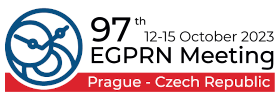Usefulness of project management softwares in a general practice setting during a health care crisis.
Jean-Francois Michel
Keywords: Covid-19, general practice, patient care, disease management
Background:
On 29 February 2020 the first patient was officially diagnosed with Covid-19 in Luxembourg. Shortly afterwards, a national lockdown was declared, Covid-19 outpatient centres opened, general practice clinics were closed to the public and clinical care was only accessible via a newly established teleconsultation system. As in most countries around the world, the Luxembourgish system underwent a structural revolution within a few weeks which exposed general practitioners to considerable stress and uncertainties. In order to avoid doctors’ isolation, promote efficient communication between general practitioners (GP) and improve patient care overall, we decided to set up a Covid-19 response forum under the form of a workspace on Slack, a market leader in project management softwares. Slack is an instant messaging program optimising the workflow by connecting people and centralising conversations, data, and apps in one virtual place. Within 2 weeks after the creation of this workspace, more than 600 doctors had subscribed to the platform most of whom were general practitioners.
Research questions:
What are relevant lessons for general practice that can be learned from using such a project management platform during the Covid-19 pandemic?
Method:
This is a descriptive study based on a quantitative analysis of this Luxembourgish Covid-19 workspace based on the Slack analytics tool as well as a qualitative analysis of relevant channels in which users posted in.
Results:
Determine the impact of this platform on the management of the Covid-19 crisis in a general practice setting in Luxembourg. Identify the main worries and most discussed issues on the platform. Determine the strengths and weaknesses of this innovative approach and the implications for future health crises.
Conclusions:
This experience of using a project management software in the context of the Luxembourgish Covid-19 crisis shows that such an approach can be of interest for the management of future health crises.
Points for discussion:
#137

